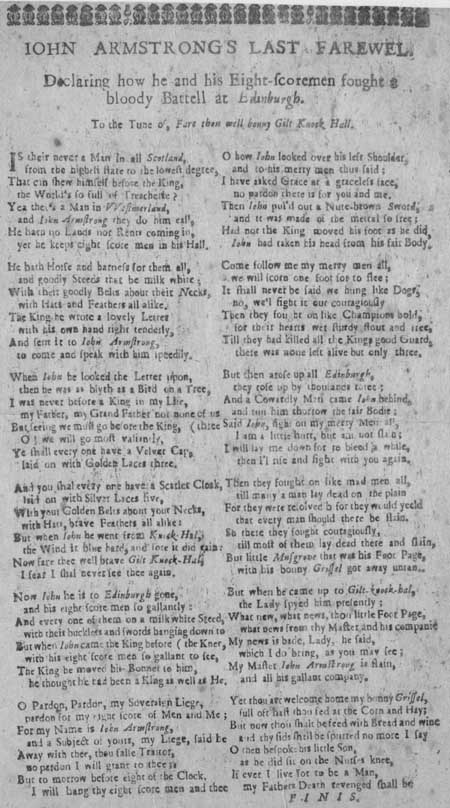Commentary
This ballad begins: 'IS their never a Man in all Scotland, / from the highest state to the lowest degree.' The text preceding this ballad reads: 'Declaring how he and his Eight-scoremen fought a bloody Battell at Edinburgh. / To the Tune of, Fare thou well bonny Gilt Knock Hall.' John Armstrong was a border riever and moss-trooper, who also indulged in blackmail and protection rackets, as far south as Newcastle. His base was his home at Gilnockie Hall, near Langholm and although gentry himself, he owed allegiance to the more powerful Lord Maxwell. In 1530 James V rode out to administer swift justice in the borders in response to English demands and threats. He hung Armstrong quickly and with no trial, despite Armstrong's demonstration of loyalty. It is now thought that the circumstances were engineered by Maxwell as he received Armstrong's lands not long after. Early ballads were dramatic or humorous narrative songs derived from folk culture that predated printing. Originally perpetuated by word of mouth, many ballads survive because they were recorded on broadsides. Musical notation was rarely printed, as tunes were usually established favourites. The term 'ballad' eventually applied more broadly to any kind of topical or popular verse.
View Transcription | Download PDF Facsimile
|
 |
Probable date published:
1701- shelfmark: S.302.b.2(064)
 View larger image
View larger image
|


